Search
Search Results
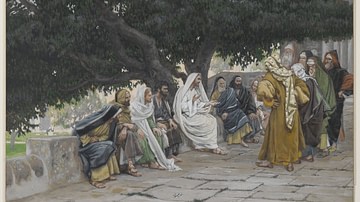
Definition
Sadducees
The Sadducees were part of the upper-class aristocrats and provided much of the priesthood, categorized through the lineage of priestly houses. They served on the Sanhedrin, the city council that organized law courts and regulations, which...
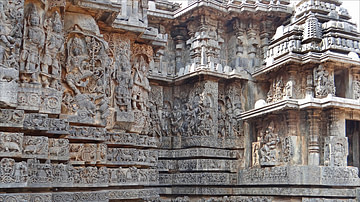
Article
Hoysala Architecture
The Hoysala era (1026 CE – 1343 CE) was marked by illustrious achievements in art, architecture, and culture. The nucleus of this activity lay in the present day Hassan district of Karnataka, India. The most remarkable accomplishment of this...
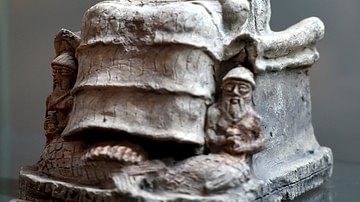
Article
Enki's Journey to Nippur
Enki's Journey to Nippur (c. 2000 BCE) is a Sumerian origin myth explaining the creation of the temple at Eridu by the god Enki and how musical instruments were ordained for use in festivals in ancient Mesopotamia. The poem formed part of...

Definition
Ziggurat - Mountains of the Gods
A ziggurat is a form of monumental architecture originating in ancient Mesopotamia, which usually had a rectangular base and was built in a series of steps up to a flat platform upon which a temple was raised. The ziggurat was an artificial...

Definition
Ancient Egyptian Architecture
Ancient Egyptian architecture is often associated closely with the pyramids of Giza but was actually quite diverse, taking a number of forms in the construction of administrative buildings, temples, tombs, palaces, and the private homes of...

Article
Ten Ancient Rome Facts You Need to Know
Ancient Roman culture affected vast numbers of people across the known world of its time, beginning with the rise of the Roman Republic (509-27 BCE) and throughout the duration of the Roman Empire (27 BCE - c. 476 CE in the West and 1453...
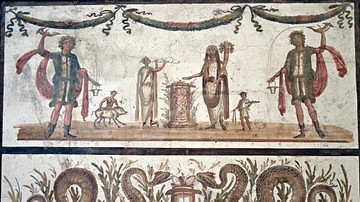
Article
Roman Household Spirits: Manes, Panes and Lares
To the ancient Romans, everything was imbued with a divine spirit (numen, plural: numina) which gave it life. Even supposedly inanimate objects like rocks and trees possessed a numen, a belief which no doubt grew out of the early religious...

Definition
Jerusalem
Jerusalem is a major holy city for the three Western traditions of Judaism, Christianity, and Islam. It sits on spurs of bedrock between the Mediterranean Sea and the Dead Sea area. To the north and west, it tapers off to the Jezreel Valley...

Definition
Selinus
Selinus (or Selinous, modern: Selinunte), located on the south-west coast of Sicily, was founded in the mid-7th century BCE by Greek colonists from Megara Hyblaea on the eastern side of the island. Selinus was the most western Greek colony...
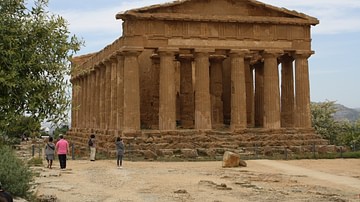
Definition
Agrigento
Agrigento (Greek: Akragas, Latin: Agrigentum) was a Greek-founded city-state located on the south coast of Sicily near the river Akragas (now S. Biagio) just 5 km from the sea. At its peak, the city may have had as many as 300,000 inhabitants...